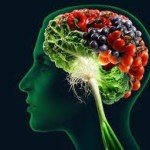Brain Food
Brain-food
What you eat has a direct impact on the way you feel. Aim for a balanced diet of low-fat protein, complex carbohydrates, fruits and vegetables. Reduce your intake of foods that can adversely affect your brain and mood, such as caffeine, alcohol, trans fats, saturated fats, and foods with high levels of chemical preservatives or hormones (such as certain meats).
Minimize sugar and refined carbs. You may crave sugary snacks, baked goods, or comfort foods such as pasta or French fries, but these “feel-good” foods quickly lead to a crash in mood and energy.
Focus on complex carbohydrates. Foods such as baked potatoes, whole-wheat pasta, oatmeal, and whole grain breads can boost serotonin levels without a crash.
Boost your B vitamins. Deficiencies in B vitamins such as folic acid and B-12 can trigger depression. To get more, take a B-complex vitamin supplement or eat more citrus fruit, leafy greens, beans, chicken, and eggs.
Foods rich in nutrients that can boost mood include: bananas (magnesium to decrease anxiety, vitamin B6 to promote alertness, tryptophan to boost feel-good serotonin levels), Jambul or Jamun fruit (vitamin C, Potassium, Iron, Calcium help protect the brain from oxidative stress), brown rice (serotonin, thiamine to support sociability), Tomatoes (Lycopene protects against free radical damage to cells), Pumpkin seeds (zinc, vital for enhancing memory and thinking skills), Broccoli (a great source of vitamin K, which is known to enhance cognitive function and improve brainpower), Nuts, leafy green vegetables, asparagus, olives, seeds, eggs, brown rice and wholegrains (rich in Vit E which helps to prevent cognitive decline), and spinach (magnesium, folate to reduce agitation and improve sleep).
An intelligent diet would be heavy on the proteins, complex carbohydrates and good fats. Proteins are essential to make neurotransmitters which are vital for smart processes. Carbohydrates break down into glucose which is the brain’s primary source of energy. You are aiming for a steady supply here.
Don’t skip meals. Going too long between meals can make you feel irritable and tired, so aim to eat something at least every three to four hours.

Foods rich in certain omega-3 fats called EPA and DHA can give your mood a big boost. Essential fatty acids (EFAs) cannot be made by the body and must be obtained through diet. The most effective omega-3 fats occur naturally in oily fish. They are good for healthy brain function, the heart, joints and general wellbeing.
Oily fish contains EPA and DHA in a ready-made form, which enables the body to use it easily. Low DHA levels have been linked to a higher risk of developing Alzheimer’s disease and memory loss. The best sources are fatty fish such as mackerel (Vanjaram), anchovies (Neththili), sardines (Maththi). When cooking fish, grill or bake rather than fry.
Vegetarians can get omega-3s from foods rich in ALA fatty acids, such as vegetable oils and nuts (especially walnuts), flaxseeds, pumpkin seeds, soybeans, and tofu. However our bodies generally convert very little ALA into EPA and DHA, so you may not see as big of a benefit.
Like everything else in your body, the brain cannot work without energy. The ability to concentrate and focus comes from the adequate, steady supply of energy – in the form of glucose in our blood to the brain. Achieve this by choosing wholegrains which release glucose slowly into the bloodstream, keeping you mentally alert throughout the day. Opt for ‘brown’ cereals, wheatbran, granary bread and brown pasta.
